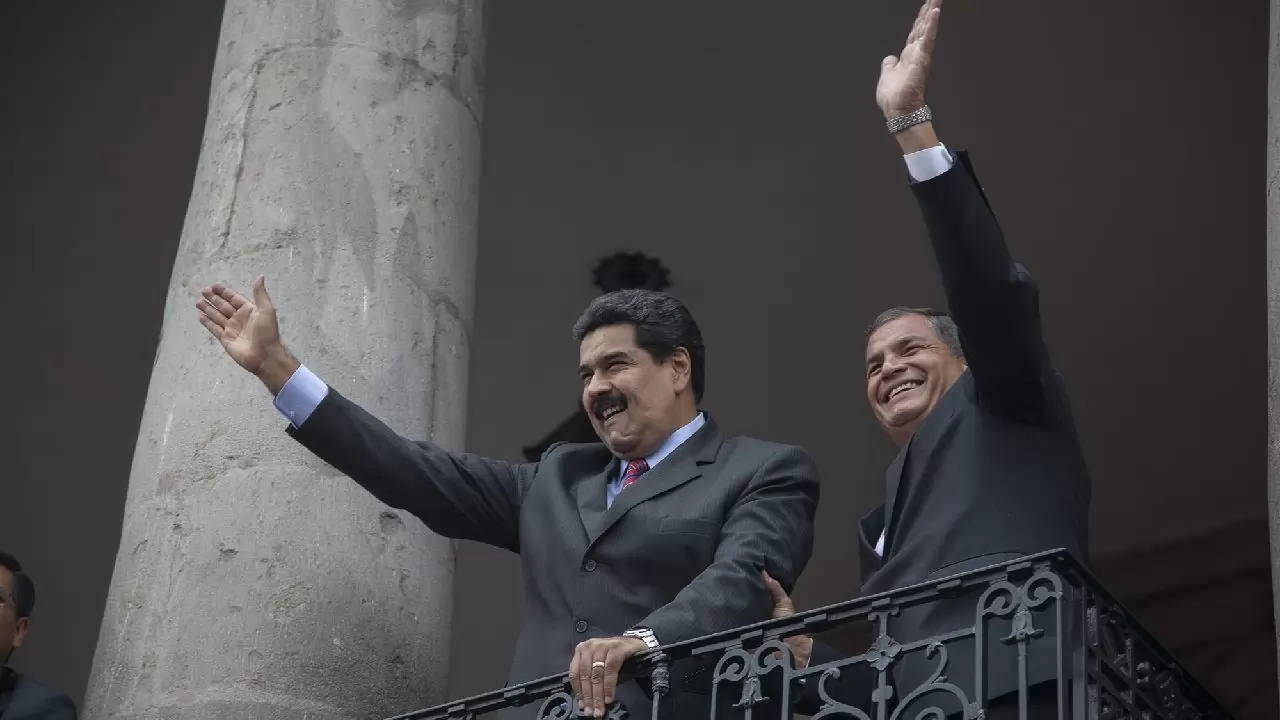
President of Venezuela Nicolás Maduro (Wikimedia Commons)
New Delhi: Nicolás Maduro has been proclaimed the winner of Venezuela’s presidential election 2024 by the government-controlled electoral authority, a decision that quashed opposition hopes of ending his long-standing authoritarian rule. The announcement, made after a six-hour delay, was immediately contested by the opposition and several international governments.
According to Venezuela’s electoral council, Maduro secured 51.21 per cent of the votes, narrowly defeating his rival, former diplomat Edmundo González Urrutia, who garnered 44.2 per cent. Independent observers criticized the election as highly irregular, even by the standards of Maduro's regime, which has been marked by repressive tactics and political imprisonments.
Critics accuse Maduro of steering Venezuela into severe economic and social turmoil, transforming the nation into a repressive state. González’s campaign had sparked rare optimism among Venezuelans, who have faced a decade of economic contraction and mass emigration.
Maduro, dedicating his victory to his predecessor Hugo Chávez, proclaimed, “Long live Chávez. Chávez is alive!” Addressing his supporters in Caracas, he stated, “I am Nicolás Maduro Moros – the re-elected president of the Bolivarian Republic of Venezuela … and I will defend our democracy, our law and our people.”
The opposition swiftly rejected the results. “The Venezuelans and the entire world know what happened,” said González. Opposition leader María Corina Machado, who supported González’s campaign after being barred from running, declared, “We won and everybody knows it. We haven’t just defeated them politically and morally, today we defeated them with votes.”
Maduro’s allies celebrated the outcome, while the U.S. and other nations expressed skepticism about the vote's legitimacy. Cuban leader Miguel Díaz-Canel Bermúdez hailed it as a triumph of “the dignity and courage of the Venezuelan people.” In contrast, U.S. Secretary of State Antony Blinken voiced “serious concerns that the result announced does not reflect the will or the votes of the Venezuelan people.”
Spain's Foreign Minister, José Manuel Albares, called for transparency, demanding detailed polling station data to verify the results. Chile's President Gabriel Boric stated, “Maduro’s regime must understand that the results it has published are hard to believe.”
---------------------------------------------
Born on November 23, 1962, Nicolás Maduro Moros began his career as a bus driver before becoming a trade union leader. His political journey took a significant turn in 2000 when he was elected to the National Assembly. Maduro's close association with President Hugo Chávez saw him hold various key positions, including President of the National Assembly (2005-2006), Minister of Foreign Affairs (2006-2013) and Vice President (2012-2013). Following Chávez's death on March 5, 2013, Maduro assumed the presidency and was later elected with 50.62 per cent of the vote as the United Socialist Party of Venezuela candidate.
Challenges and protests
Maduro's presidency has been marked by severe economic hardships and widespread shortages, leading to significant public discontent. The economic crisis sparked nationwide protests in 2014, resulting in a decline in living standards and Maduro's popularity. In 2015, an opposition-led National Assembly was elected, initiating a recall movement against Maduro in 2016, which was ultimately thwarted by his government. Maduro's grip on power was maintained through the Supreme Tribunal, the National Electoral Council, and the military, leading to a constitutional crisis and another wave of protests in 2017.
In response to the 2017 protests, Maduro called for a constitutional rewrite, leading to the election of the Constituent Assembly under questionable conditions. The 2018 presidential elections saw Maduro re-elected amidst widespread condemnation. On January 23, 2019, opposition leader Juan Guaidó was declared interim president by the National Assembly, sparking a prolonged presidential crisis that divided the international community.
Western authors and critics have labeled Maduro as an autocrat and dictator. Under his administration, Venezuela plummeted 42 places in the Press Freedom Index between 2013 and 2023. The United Nations and Human Rights Watch estimate that over 20,000 extrajudicial killings occurred, and seven million Venezuelans fled the country. The UN Fact-Finding Mission on Venezuela highlighted the erosion of judicial independence and frequent due process violations, including political interference and evidence obtained through torture. State-controlled media and censorship have further suppressed dissent.
In 2018, the Organization of American States found that crimes against humanity were committed in Venezuela during Maduro's presidency. The U.S. has placed a $15 million reward for information leading to his arrest or conviction since 2020. In 2021, the International Criminal Court announced an investigation into the situation in Venezuela, further intensifying international scrutiny of Maduro's regime.
The election outcome dealt a blow to Venezuela’s fractured opposition, which had rallied around González, a 74-year-old former ambassador. Despite the disputed result, opposition supporters, such as 23-year-old student Anabella Donzella, remained hopeful. “I voted for Edmundo González because I believe he is the only hope of change that we have here,” she said.
Maduro, who first assumed office after Chávez’s death in 2013, appeared confident throughout the election process. Visiting Chávez’s tomb on election day, he compared the vote to a pivotal battle in Venezuela’s history, asserting, “This is our battle of Carabobo and we are heading straight for victory.”





Copyright © 2026 Top Indian News
